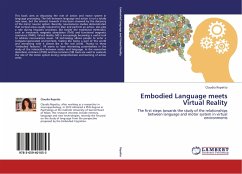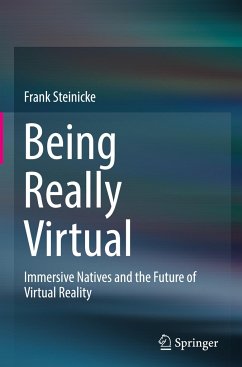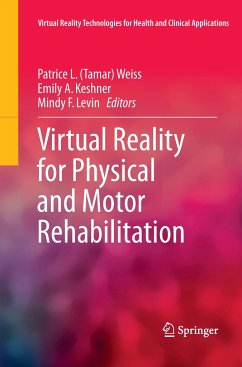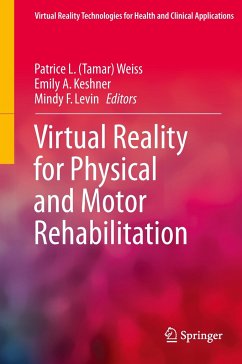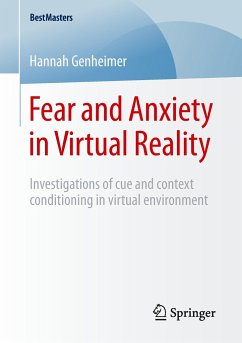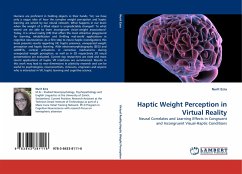
Haptic Weight Perception in Virtual Reality
Neural Correlates and Learning Effects in Congruent and Incongruent Visual-Haptic Conditions
Versandkostenfrei!
Versandfertig in 6-10 Tagen
39,99 €
inkl. MwSt.

PAYBACK Punkte
20 °P sammeln!
Humans are proficient in holding objects in their hands. Yet, we have only a vague idea of how the complex weight perception and haptic learning are solved by our neural network. What happens in our brain when the weight of a lifted object is unpredictably changed? To what extent are we able to learn incongruent vision-weight associations? Today, it is virtual reality (VR) that offers the most attractive playground for learning, rehabilitation and thrilling real-world applications in cognitive neuroscience. As a first step to neuro-haptic investigations this book presents results regarding VR,...
Humans are proficient in holding objects in their hands. Yet, we have only a vague idea of how the complex weight perception and haptic learning are solved by our neural network. What happens in our brain when the weight of a lifted object is unpredictably changed? To what extent are we able to learn incongruent vision-weight associations? Today, it is virtual reality (VR) that offers the most attractive playground for learning, rehabilitation and thrilling real-world applications in cognitive neuroscience. As a first step to neuro-haptic investigations this book presents results regarding VR, haptic presence, unexpected weight perception and haptic learning. With electroencephalography (EEG) and sLORETA, cortical activations in corrective mechanisms during unexpected weight perception, as well as in 2D respectively 3D visual presentations are evaluated. Current top researchers are cited and most recent applications of haptic VR interfaces are summarized. Results in this work maylead to new dimensions in plasticity research and can be useful to psychologists, neuroscientists, clinicians, engineers and anyone who is interested in VR, haptic learning and cognitive science.





